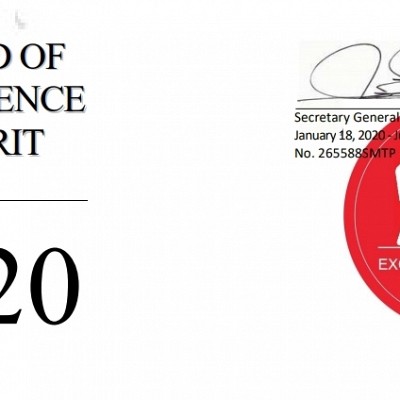In today's highly competitive business landscape, companies must streamline their processes and maintain strong relationships with their customers to succeed. This is where Customer Relationship Management (CRM) software comes into play. CRM software is not just a tool for managing contacts; it's a comprehensive system designed to help sales teams optimize their processes, engage with leads, close more deals, and ultimately maximize sales. In this guide, we will explore how sales teams can leverage CRM software to boost their productivity and drive revenue growth.
Understanding CRM Software: What Is It?
Customer Relationship Management (CRM) software is a tool that helps businesses manage their interactions with potential and current customers. It centralizes all customer information, tracks interactions, and supports collaboration across departments, allowing sales teams to have a 360-degree view of customer data. This centralized approach helps in identifying sales opportunities, nurturing leads, and enhancing customer relationships.
Key Features of CRM Software for Sales Teams
CRM software offers various features that are specifically beneficial for sales teams. Some of the key features include:
Lead Management
CRM software helps sales teams track and manage leads throughout the sales cycle. It automates the lead capture process, assigns leads to the right sales representatives, and tracks interactions to ensure timely follow-ups. This helps prevent leads from falling through the cracks and increases the chances of conversion.
Contact Management
Having access to detailed information about each contact is crucial for personalizing sales pitches. CRM software stores customer data, including contact details, interaction history, preferences, and pain points. This enables sales reps to tailor their communication strategies based on the customer's needs.
Sales Pipeline Management
A visual sales pipeline helps sales teams monitor the progress of each deal. CRM software provides a clear overview of where each lead is in the sales funnel, allowing teams to identify bottlenecks and prioritize efforts for maximum efficiency.
Task Automation
CRM software automates repetitive tasks, such as data entry, follow-up reminders, and report generation. This allows sales reps to focus more on selling and less on administrative tasks, leading to improved productivity.
Reporting and Analytics
CRM software provides valuable insights through reports and analytics. Sales teams can track performance metrics, monitor key performance indicators (KPIs), and make data-driven decisions to improve their strategies.
Email Integration
Integrating CRM with email systems allows sales reps to track emails, schedule follow-ups, and send personalized messages directly from the CRM platform. This ensures a seamless communication process and improves engagement rates.
Benefits of Using CRM Software for Sales Teams
The benefits of using CRM software extend beyond simple contact management. Here’s how it can help sales teams maximize their sales potential:
Improved Lead Conversion Rates
With CRM software, sales teams can better manage their leads and track their journey through the sales funnel. By having a clear understanding of where each lead is in the buying process, sales reps can tailor their approach to nurture leads effectively, resulting in higher conversion rates.
Enhanced Customer Retention
CRM software allows sales teams to maintain a record of customer interactions, preferences, and history. This helps in delivering personalized experiences and building stronger relationships with customers. Happy customers are more likely to stay loyal and refer new business.
Increased Efficiency and Productivity
By automating routine tasks, CRM software enables sales teams to focus more on strategic activities, such as prospecting, pitching, and closing deals. This leads to increased efficiency and higher productivity levels.
Better Collaboration Among Teams
CRM software centralizes customer information, making it accessible to everyone in the organization. This facilitates better collaboration between sales, marketing, and customer service teams, ensuring a consistent and coordinated approach to customer engagement.
Data-Driven Decision Making
With advanced reporting and analytics capabilities, CRM software empowers sales managers to make data-driven decisions. By analyzing sales data, teams can identify trends, forecast future sales, and adjust strategies to meet targets.
Best Practices for Maximizing Sales with CRM Software
To get the most out of CRM software, sales teams need to follow certain best practices:
Define Clear Sales Processes
Before implementing CRM software, it’s important to define clear sales processes and stages. This helps in setting up the CRM system in a way that aligns with the organization's sales methodology and ensures consistency across the team.
Train Sales Reps Effectively
CRM software can be complex, and sales reps need proper training to use it effectively. Training should cover how to enter data, use different features, generate reports, and follow up with leads. Ongoing training sessions are also important to keep the team updated on new features and best practices.
Leverage Automation Features
Sales teams should take full advantage of automation features to save time and reduce manual errors. Automating follow-up emails, task reminders, and data entry can significantly boost productivity and ensure a smooth workflow.
Monitor Performance Regularly
Regularly monitoring performance metrics and KPIs is crucial for identifying areas of improvement. CRM software provides real-time insights that can help sales managers track the progress of individual team members and adjust strategies as needed.
Keep Data Clean and Up-to-Date
CRM software is only as effective as the data it contains. Sales teams must ensure that data is accurate, up-to-date, and free of duplicates. Regular data cleansing and validation processes should be implemented to maintain data integrity.
Integrate CRM with Other Tools
Integrating CRM software with other business tools, such as marketing automation platforms, email systems, and customer service software, ensures a seamless flow of information and enhances the overall effectiveness of sales efforts.
Integrate CRM with Other Tools, Including Payroll Systems
Integrating CRM software with other business tools, such as marketing automation platforms, email systems, and customer service software, ensures a seamless flow of information and enhances the overall effectiveness of sales efforts. One critical integration that is often overlooked by sales teams is with payroll systems.
Streamlining Commission Calculations with Payroll Integration
For sales teams, commissions are a significant component of their compensation structure. Calculating commissions accurately and promptly is crucial to maintaining sales morale and motivation. Integrating CRM software with payroll software allows for seamless data flow between the two platforms. This integration ensures that all sales transactions and commissionable activities recorded in the CRM automatically reflect in the payroll system.
This integration has several benefits:
Accurate and Timely Payouts: By automating commission calculations and payouts, the integration minimizes manual errors, ensuring that sales reps receive accurate and timely payments.
Transparency and Trust: Sales reps can have clear visibility into how their commissions are calculated, leading to increased transparency and trust between the sales team and management.
Reduced Administrative Work: The finance team can save significant time and effort by avoiding manual data entry, verification, and reconciliation processes, leading to more efficient payroll management.
Enhanced Reporting and Analytics: Integrating payroll with CRM also allows for more comprehensive reporting. Sales managers can analyze the correlation between sales performance and compensation, helping them fine-tune incentive structures and reward top performers more effectively.
Choosing the Right CRM Software for Your Sales Team
Choosing the right CRM software is critical to maximizing its benefits. Here are some factors to consider when selecting CRM software for your sales team:
Ease of Use
The CRM software should be user-friendly and intuitive. Sales teams should be able to navigate the platform easily and quickly access the information they need.
Customization Options
Every sales team has unique processes and requirements. The CRM software should offer customization options to tailor the system to fit your specific needs.
Scalability
As your business grows, your CRM needs will evolve. Choose CRM software that can scale with your business and accommodate an increasing number of users and data.
Integration Capabilities
Ensure the CRM software can integrate with other tools and systems you are already using. This will help streamline processes and avoid data silos.
Mobile Accessibility
In today’s mobile-driven world, sales teams need access to CRM software on the go. Ensure the CRM software offers a robust mobile app with full functionality.
Customer Support and Training
A reliable CRM vendor should provide excellent customer support and training resources to help your team get the most out of the software.
Top CRM Software Solutions for Sales Teams
There are several CRM software options available in the market, each with its unique features and pricing plans. Some of the top CRM solutions for sales teams include:
Salesforce
Salesforce is one of the most popular CRM platforms, known for its robust features, scalability, and extensive customization options. It offers a range of tools for lead management, sales forecasting, automation, and reporting.
HubSpot CRM
HubSpot CRM is a user-friendly and affordable option, especially for small to medium-sized businesses. It offers essential CRM features, such as contact management, lead tracking, email integration, and reporting, with a simple interface.
Zoho CRM
Zoho CRM is a comprehensive solution that offers a wide range of features, including sales automation, lead management software, analytics, and social media integration. It is highly customizable and caters to businesses of all sizes.
Pipedrive
Pipedrive is designed specifically for sales teams, offering a visual sales pipeline, automation features, and reporting tools. It is easy to use and integrates well with other business tools.
Microsoft Dynamics 365
Microsoft Dynamics 365 is a powerful CRM platform that integrates seamlessly with other Microsoft products. It offers advanced features for sales automation, customer service, and marketing.
Conclusion
CRM software is a game-changer for sales teams looking to maximize their sales potential. By providing a centralized platform for managing leads, automating tasks, and gaining insights through analytics, CRM software enables sales teams to work more efficiently and close more deals. To achieve the best results, sales teams must choose the right CRM solution, define clear sales processes, and leverage the full range of features offered by the software. With the right approach, CRM software can be a valuable asset in driving sales growth and enhancing customer relationships.






































